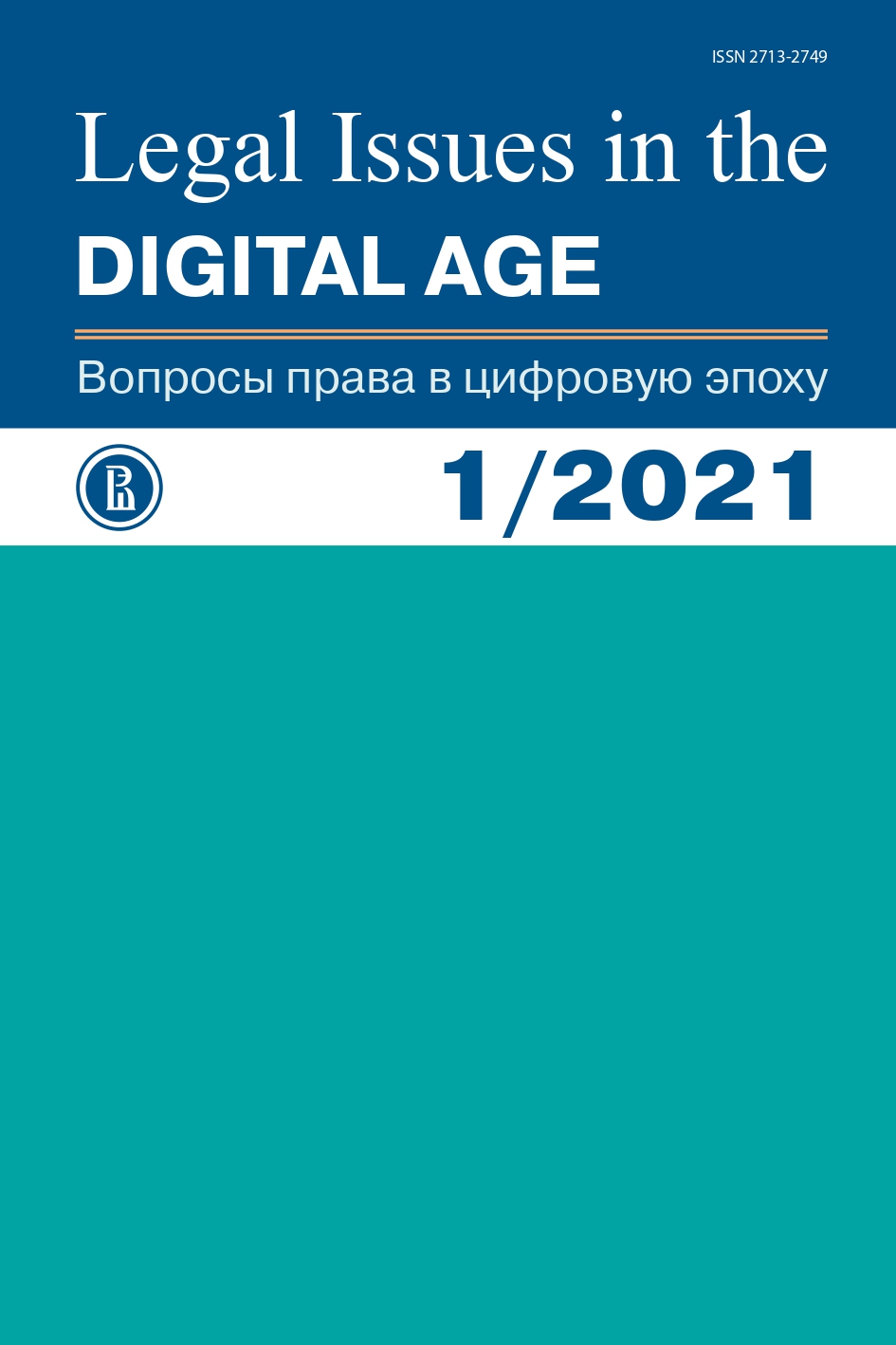Criminal law treatment of deviant behavior in media and social networks
Abstract
It would be difficult to imagine modern society without information and telecommunication networks, including media and social networks that promote the development of the economy, education, medicine, etc. Media and social networks are an important means of communication and especially so during the coronavirus lockdown; however, the more people are involved in cyberspace, the more crimes are committed there. The subject of this study is deviant behavior on media and social networks with the objectives of identifying the main types of deviant behavior, ascertaining the techniques used to impair public relations protected by criminal law, assessing the existing measures in criminal law that prevent deviant behavior on the internet, and proposing new measures that may be necessary. General scientific (dialectical, logical, systematic) and special legal (comparative legal, formal legal, legal modeling) methods are applied. More than 80% of cybercrime in Russia involves theft using modern social engineering technology for phishing. Although the Supreme Court of the Russian Federation has recommended otherwise, these thefts are treated as a different class in the theory of criminal law and judicial practice. One of the ways to achieve uniformity in law enforcement is to exclude special types of fraud from the Criminal Code of the Russian Federation. Another common way of taking possession of someone else’s property is to use a computer program to freeze a system until a certain amount of money has been transferred to a particular account. A gap in the treatment of such acts by criminal law is identified and ways to eliminate it are proposed. The 2020 pandemic highlighted the role of internet in spreading various pieces of fake news; Federal Law No. 100-FZ of April 1, 2020, which supplemented Articles 207.1 and 207.2 of the Criminal Code, was an effective and timely response. Media and social networks are often used as a platform for inciting, preparing and/or organizing the commission of a crime or other offenses. The study of cyberterrorism shows that there is no need to introduce an independent standard for such acts. Cybercrime also includes attacks on privacy, and the article
explores internet harassment in detail by delineating different types of it and the legal response to them. A proposal to amend the wording of Article 137 of the Criminal Code is judged sound.
References
Barysheva K.A. (2017) Kiberstalking as a new form of criminal action. In: Ugolovnoe pravo: strategiya razvitiya v XXI veke. Moscow: RG-Press, pp. 347–350 (in Russian)
Bolsunovskaya L. M. (2016) The criminalization of a computer information fraud in the Russian law. Biblioteka kriminalista, no 3, pp. 15–20 (in Russian)
Chekunov I.G. (2012) The cybercriminality: term and classification. Rossijskij sledovatel’, no 2, pp. 37–44 (in Russian)
Danilov D. (2018) The qualification of Dos-attacks produced by profit interests. Ugolovnoe pravo, no 6, pp. 37–42 (in Russian)
Golovnenkov P.V. (2021) The German Criminal Code (Strafgesetzbuch (StGB). Tanslation and comments. Potsdam: University Press, 489 pp. (in Russian)
Inogamova-Hegaj L.V. (2019) The qualification of cybercrimes. In: Ugolovnoe pravo: strategiya razvitiya v XXI veke.... Moscow: RG-Press, pp. 52–55 (in Russian)
Kibal’nik A. (2018) The qualification of a fraud according to recent decision of the Supreme Court of the Russian Federation. Ugolovnoe pravo, no 1, pp. 61–67 (in Russian)
Kirilenko V.P., Alekseev G.V. (2020) The garmonization of the Russian anti-criminal legislation with legal standards of the European Council. Vserossijskij kriminologicheskij zhurnal, no 6, pp. 898–913 (in Russian) DOI: https://doi.org/10.17150/2500-4255.2020.14(6).898-913
Klepickij I.A. (2021) New economic criminal law. Moscow: Prospekt, p. 984 (in Russian)
Kuleshova G.P., Kapitonova E.A., Romanovskiy G.B. (2020) Legal basis of fight against cyberterrorism in Russia and abroad. Vserossijskiy kriminologicheskij zhurnal, no 1, pp. 156–165 (in Russian) DOI: https://doi.org/10.17150/2500-4255.2020.14(1).156-165
Lopashenko N.A. (2015) Legal reform of a fraud: forced questions and forced answers. Kriminologicheskij zhurnal Bajkal’skogo gosudarstvennogo universiteta, no 3, pp. 504–513 (in Russian) DOI: https://doi.org/10.17150/1996-7756.2015.9(3).504-513
Russkevich E. (2019) Division of a theft from bank account from adjacent forms of crimes. Ugolovnoe pravo, no 2, pp. 59–64 (in Russian)
Solov’ev V.S. (2016) Criminality in social cells of Internet. A study of judicial practice. Kriminologicheskij zhurnal Bajkal’skogo gosudarstvennogo universiteta, no 1, pp. 60–72 (in Russian)
Van der Wagen W., Pieters W. (2015) From cybercrime to cyborg crime: Botnets as hybrid criminal actor-networks. British Journal of Criminology, no 3, pp. 578–595. DOI: https://doi.org/10.1093/bjc/azv009
Yurchenko I.A. (2021) The crimes against information security. Moscow: Prospekt, 208 pp. (in Russian) DOI: https://doi.org/10.31085/9785392337514-2021-208
Yurchenko I.A. (2018) Stalker as an object of criminal liability. Vestnik Universiteta O.E. Kutafina, no 12, pp. 53–56 (in Russian)
Authors who publish with this journal agree to the Licensing, Copyright, Open Access and Repository Policy.










